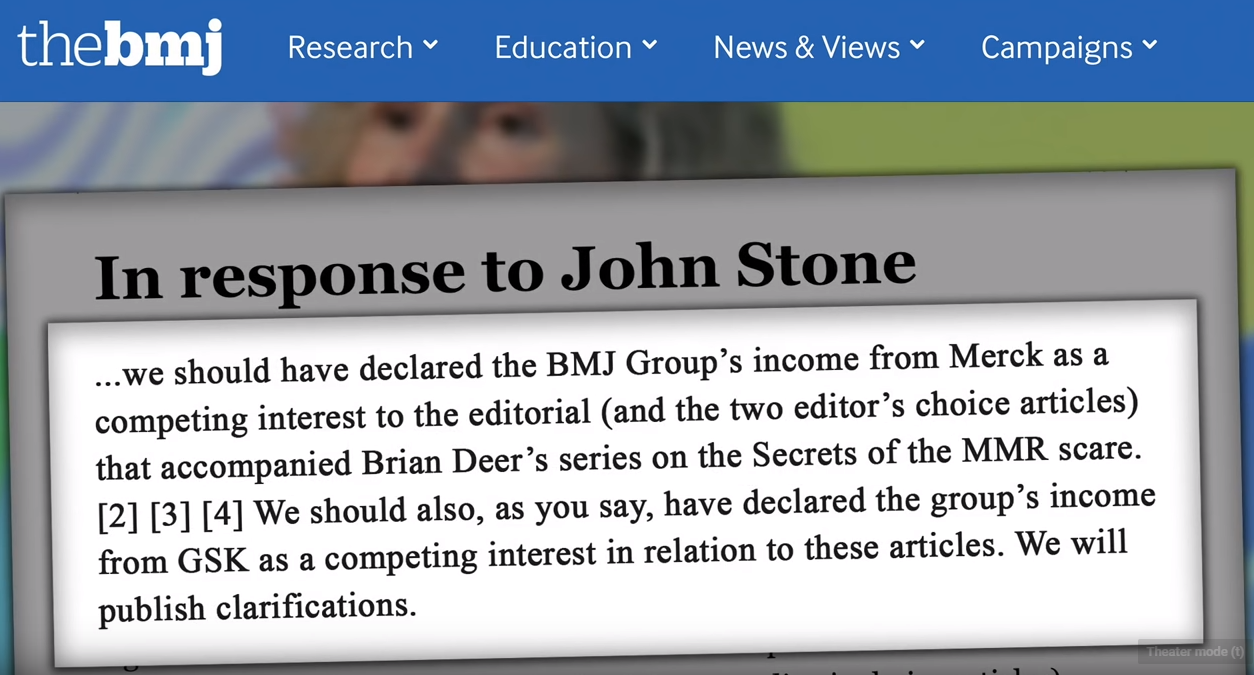Medical Science OR Medical Marketing?

Do you still believe that “medical science” is independent of the industry it reports on?!! Leading vaccine-maker MERCK admits paying for the creation of a new medical journal in Australia to promote it’s products while appearing to be an independent journal.
Current Editor-in-Chief of the prestigious medical journal The Lancet commented on this last year by saying: “Much of scientific literature, perhaps half, may simply be untrue…Science has taken a turn towards darkness.” — Dr Richard Horton, Editor-in-Chief of leading medical journal The Lancet.”
But news of a Merck-sponsored publication for doctors in Australia, that has come to light in a personal injury lawsuit there over Vioxx, has raised eyebrows in international medical publishing.
From 2002 through 2005, the Australian affiliate of Merck paid the Australian office of Elsevier, an academic publisher, to publish eight compilations of scientific articles under the title Australasian Journal of Bone and Joint Medicine, a spokesman for Elsevier said. The Merck marketing compilation was unusual in that it looked like an independent peer-reviewed medical journal. It even called itself a “journal,” without indicating in any of the issues that Merck had paid for it.
Elsevier is not the only publishing house which has been accused of sometimes blurring the line between advertising and science. This problem is particularly pronounced in medicine, where there is much money to be made from sales of drugs and medical devices. Drug companies push to publish positive results, saysGiustini, who runs a popular wiki for health librarians, because it is an effective means of getting the attention of doctors, who prescribe drugs and recommend medical devices. So it shouldn’t come as a complete surprise, he says, that a drug company (Merck, in the case of the fake Australian journal) funded a marketing publication in a form that looked like a journal. “It’s troubling and shocking but not completely new.”
The effects of polluting medical literature with poor or suspect science are significant, says Giustini. Doctors are too busy to carefully assess every article about a new drug or device, he says, yet must now take that time because they are wary of accepting in good faith the authors’ conclusions.
“I believe that many doctors reviewing the journal would likely believe it to be a peer-reviewed medical journal, and rely upon the contents as they would upon other journals they read,” said Robert J. Donovan, an expert witness for the plaintiff, according to a deposition statement.
Its not just Australia the British Medical Journal is also guilty.
The British Medical Journal published several scathing editorials against Dr. Andrew Wakefield whose research figures pointed to a possible connection of gut damage in children and the administration of MMR vaccine in the 90’s. Hardly an independent view as the BMJ admits it receives funding from both Merck and GSK, the makers of the MMR vaccines.







